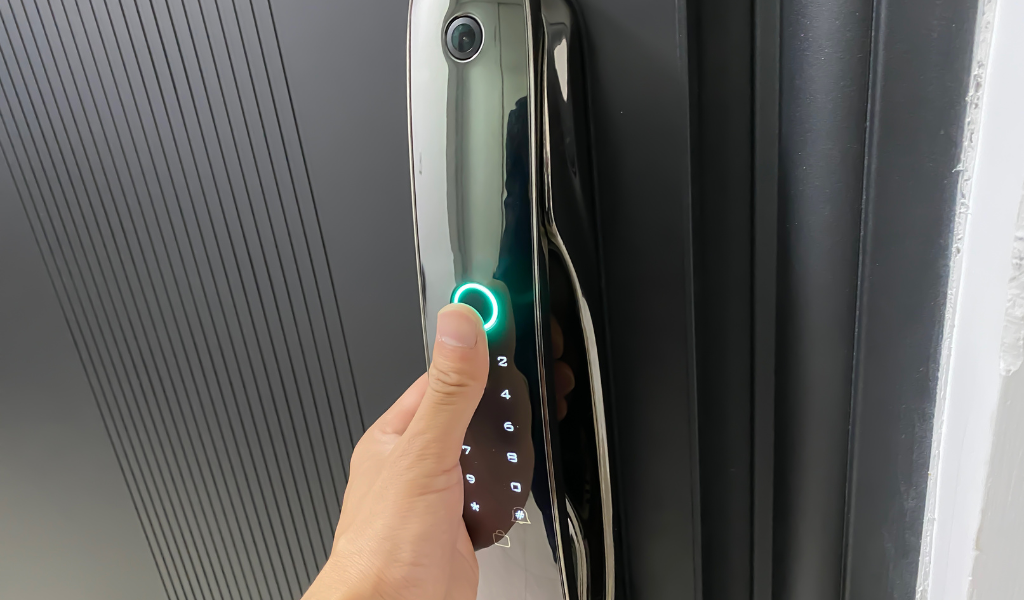Pros and Cons of Biometric Locks – Are They Truly Worth the Hype?
In recent years, biometric locks have emerged as a cutting-edge solution in the realm of security technology. The promise of enhanced security and convenience has fueled their increasing adoption in various settings, from residential homes to high-security facilities. This article aims to delve into the pros and cons of biometric locks, exploring whether they live up to the hype surrounding them.
Basics of Biometric Locks
Biometric locks operate on the principle of using unique biological identifiers to grant access. Common types include fingerprint, iris, and facial recognition, each capturing distinct physiological features. These locks work by analyzing and matching these features against stored templates, providing a secure and personalized means of access.
The Pros of Biometric Locks
Enhanced Security
One of the primary advantages of biometric locks lies in their ability to offer enhanced security. Unlike traditional locks that rely on keys or codes, biometric locks use unique biological markers that are difficult to duplicate or forge. The reliance on a person’s unique physical attributes, such as fingerprints or iris patterns, adds an extra layer of protection, making it challenging for unauthorized individuals to gain access.
Convenience
Biometric locks offer unparalleled convenience in accessing secured spaces. Users no longer need to fumble with keys or remember complex codes – a simple scan or recognition of their biometric data grants them quick and easy access. This proves especially beneficial in situations where rapid access is crucial, contributing to the growing popularity of biometric locks in residential and commercial settings.
Integration with Smart Technology
The seamless integration of biometric locks with smart technology is another compelling advantage. Many biometric lock systems can connect with smartphones and other devices, allowing users to control access remotely. This integration also extends to smart home security systems, creating a comprehensive and interconnected security network that can be monitored and managed with ease.
Audit Trail and Accountability
Biometric locks offer an advanced level of accountability through the generation of an audit trail. Every access attempt is logged, creating a comprehensive record of who accessed the secured space and when. This feature enhances accountability and traceability, providing valuable information in case of security breaches or incidents.
The Cons of Biometric Locks
Initial Cost
While biometric locks offer significant benefits, the initial cost of installation can be a deterrent for some. Compared to traditional locks, biometric systems typically involve a higher upfront investment. The cost includes not only the purchase of the biometric hardware but also the expenses associated with installation and setup by trained professionals.
Reliability Concerns
Despite their advanced technology, biometric locks are not infallible. Concerns related to false positives and false negatives exist, where the system either incorrectly grants access to an unauthorized individual or denies access to an authorized user. Additionally, environmental conditions such as dirt, moisture, or extreme temperatures can impact the reliability of biometric recognition.
Privacy and Data Security
The collection and storage of biometric data raise significant privacy and data security concerns. Unlike passwords or PIN codes, biometric information is inherently personal and, if compromised, can lead to severe consequences, including identity theft. The risk of data breaches in which biometric data is exposed adds an additional layer of complexity to the security considerations surrounding biometric locks.
Limited Accessibility
Biometric locks may pose challenges for certain user groups. Elderly individuals, for example, may experience difficulties with fingerprint recognition due to changes in skin texture. Additionally, disabled individuals may face accessibility issues if the biometric system is not designed to accommodate their specific needs. In emergency situations, the reliance on biometric data may create delays in accessing secured spaces.
Case Studies and Examples
Examining real-world scenarios provides valuable insights into the effectiveness of biometric locks. Instances of successful implementation showcase their potential benefits, while examples of failure or vulnerabilities underscore the importance of addressing existing limitations. In a notable case, a high-security facility successfully reduced unauthorized access by implementing facial recognition biometric locks, showcasing the technology’s efficacy in a critical setting.
Current Technological Advancements
Ongoing research and development in biometric technology aim to address existing limitations and drawbacks. Innovations such as improved algorithms, multi-modal biometrics combining various recognition methods, and adaptive systems that account for environmental conditions are shaping the future of biometric locks. These advancements hold the potential to enhance reliability and security, addressing some of the concerns associated with current biometric lock systems.
User Experiences and Reviews
Aggregate user feedback and reviews provide valuable insights into the practicality and user satisfaction associated with biometric locks. Positive experiences often highlight the convenience and security benefits, while negative experiences may point to reliability issues or privacy concerns. Understanding the factors that influence user satisfaction or dissatisfaction is crucial in evaluating the overall effectiveness of biometric locks.
Biometric Locks – A Choice For Enhanced Security and Convenience
In conclusion, biometric locks offer a combination of enhanced security and convenience but come with their share of drawbacks. The higher initial cost, reliability concerns, privacy considerations, and limited accessibility should be carefully weighed against the benefits.
As technological advancements continue, biometric locks may evolve to address current limitations, potentially solidifying their place as a reliable and secure means of access control. When considering the adoption of biometric locks, individuals and organizations should weigh the pros and cons carefully, making informed decisions based on their specific needs and circumstances.
